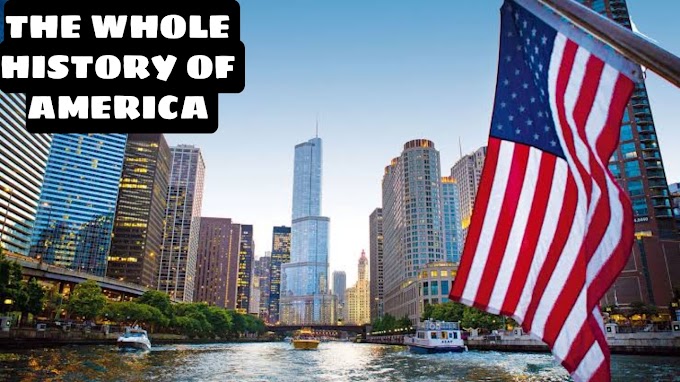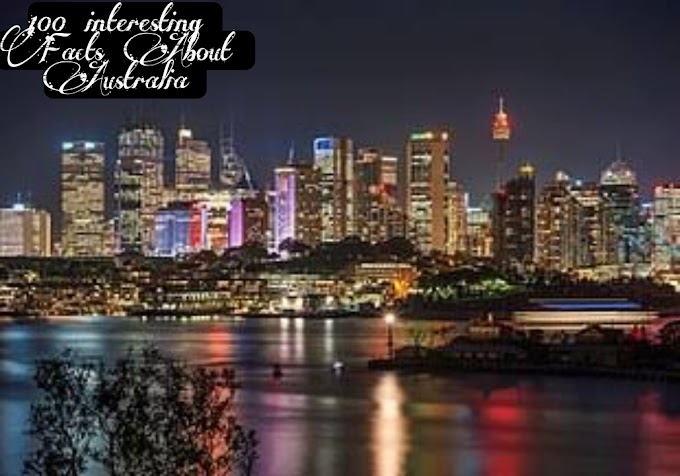THE WHOLE HISTORY OF CUBA
Hello Guys:
Welcome to countries Facts so today in this Article I will show you the whole history of cuba officially the republic of cuba is a country comprising the island of cuba as well as isla de la juventud and several minor archipelagos cuba is located in the northern caribbean where the caribbean sea gulf of mexico and atlantic ocean meet it's also known as the pearl of the antilles welcome to our animated history channel this show presents to you a brief history of cuba before the arrival of the spanish cubo is inhabited by three distinct tribes of indigenous peoples of the americas the taino and arawak people the guana watabe and the sebone people after first landing on an island then called guanahani bahamas christopher columbus commanded his three ships to land on cuba's northeastern coast on the 28th of october 1492 columbus claimed the island for the new kingdom of spain and named it isla juana after juan prince of asturias in 1511 the first spanish settlement was founded by diego velazquez de cuellar at baracoa the native daino were forced to work under the encomienda system which resembled a feudal system in medieval europe within a century the indigenous people were virtually wiped out due to multiple factors primarily eurasian infectious diseases to which they had no natural resistance aggravated by harsh conditions of the repressive colonial subjugation on the first of september 1548 dr gonzalo peresta angulo was appointed governor of cuba he arrived in santiago cuba and immediately declared the liberty of all natives the seven years war which erupted in 1754 across three continents eventually arrived in the spanish caribbean spain's alliance with the french pitched them into direct conflict with the british and a british expedition of five warships and four thousand troops set up from portsmouth to capture cuba the british immediately opened up trade with their north american and caribbean colonies causing a rapid transformation of cuban society they imported food horses and other goods into the city as well as thousands of slaves from west africa to work on the underdeveloped sugar plantations less than a year after britain's seized havana it signed the peace of paris together with france and spain ending the seven years war the treaty gave britain florida in exchange for cuba the population of cuba in 1817 was about six hundred thousand of which fifty percent were white twenty percent free people of color and thirty percent black slaves in eighteen sixty eight a sugar planter called carlos manuel de cespedes led a rebellion aiming at full independence from spain de cespedes freed his slaves to fight with him for an independent cuba the rebellion resulted in a prolonged conflict known as the 10 years war after the spanish-american war spain and the united states signed the treaty of paris in 1898 which made cuba become a protectorate of the united states cuba gained formal independence from the us on the 20th of may 1902 as the republic of cuba under cuba's new constitution the u.s retained the right to intervene in cuban affairs and to supervise its finances and foreign relations in 1924 gerardo machado was elected president during his administration tourism increased markedly and american-owned hotels and restaurants were built to accommodate the influx of tourists the tourist boom led to increases in gambling and prostitution in cuba the wall street crash led to a collapse in the price of sugar political unrest and repression protesting students known as the generation of 1930 turned to violence and opposition to the increasingly unpopular machado a general strike in which the communist party sided with machado uprisings among sugar workers and an army revolt forced machalo into exile in august 1933. he was replaced by carlos manuel de cespedes a new constitution was adopted in 1940 which engineered radical progressive ideas including the right to labor and health care batista was elected president in the same year he outlawed the cuban communist party in 1952 between 1933 and 1958 cuba extended economic regulations enormously causing economic problems the middle class which was comparable to that of the united states became increasingly dissatisfied with unemployment and political persecution batista stayed in power until he was forced into exile in december 1958 in 1956 fidel castro and about 80 supporters landed from the yacht grandma in an attempt to start a rebellion against the batista government it was not until two years later that castro's july 26 movement emerged as the leading revolutionary group as the relationship between us and cuba worsened because of the promulgation of the agrarian reform law between 1960 and 1964 the u.s imposed a range of sanctions eventually including a total ban on trade between the countries and a freeze on all cuban owned assets in the us later castro signed a commercial agreement with soviet vice premier anastas mikoyan the cuban missile crisis occurred in october 1962. a few months later cubo is moving towards a full-fledged communist system modeled on the ussr during the 70s fidel castro dispatched tens of thousands of troops in support of soviet-supported wars in africa the standard of living was extremely spartan and discontent was rife the country faced a severe economic downturn following the withdrawal of soviet subsidies worth four billion dollars to six billion dollars annually resulting in effects such as food and fuel shortages in february 2008 fidel castro announced his resignation as president of cuba on the 24th of february his brother raul castro was declared the new president in his inauguration speech raul promised that some of the restrictions on freedom in cuba would be removed raul castro removed some of his brother's appointees the country has been politically and economically isolated by the united states since the revolution but has gradually gained access to foreign commerce and travel as efforts to normalize diplomatic relations have progressed domestic economic reforms are also beginning to modernize cuba's socialist economy thank you for watching please subscribe to our website for new Articles updated daily Goodbye.

















